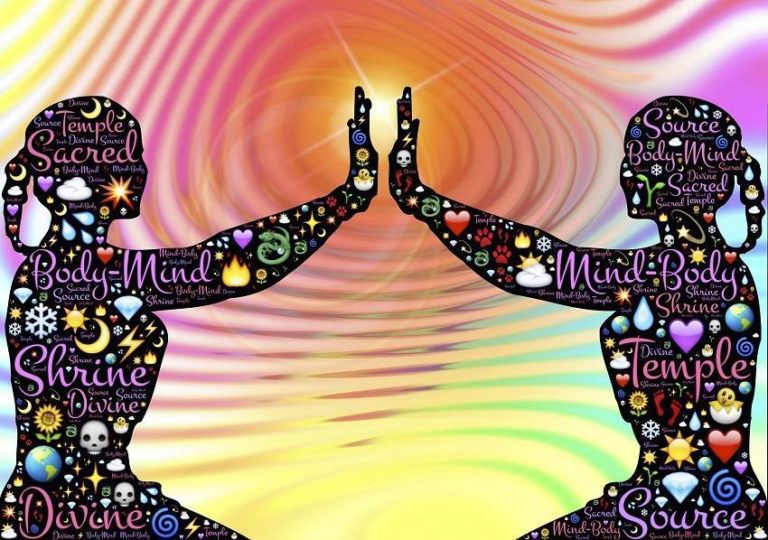Most people don’t properly understand the practice of meditation and its effects. There is a clear lack of general knowledge about the subject. One of the things that some people wonder about is why they should start practicing meditation in the first place.
The idea of spending time alone in a quiet setting and focusing on your thoughts is something that simply does not sound right for many. In reality, though, meditation might be the best thing that you could do in your life.
So why do people actually meditate?
If this is a question you still do not know the answer to, remember that meditation has tangible beneficial effects on one’s physical and mental health. The most important ones are described below:
10 Effects of Meditation on Your Physical Health
- When you meditate, your brain grows in thickness and volume. Your memory gets a boost, and so do self-awareness and attention.
- Meditation increases the blood flow to your brain. This is important since having a steady and strong blood flow to your brain enhances your cognitive functions.
- Meditation lowers the production of cortisol, a hormone that is induced by stress and that can suppress your immune system. When cortisol levels are high, you find yourself feeling unsettled and anxious without actually knowing why.
- Your heart rate and blood pressure decrease when you practice meditation. This alleviates the unnecessary pressure on your arteries and heart.
- Meditation boosts the ability of your brain to reorganize itself, a process known as neuroplasticity. As a result, you find it much easier to learn.
- Meditation enhances the production of feel-good neurotransmitters like dopamine and serotonin. Both of these are really important when it comes to controlling your moods. When you have low serotonin levels, you are at risk of developing depression.
- Another positive effect of meditation is that it boosts your immune system.
- Probably the most widely-known fact is that meditation reduces stress.
- Meditative practices also lead to muscle relaxation.
- The aging process can be slowed down when you meditate. This is because meditative activities result in an increase of DHEA and melatonin levels and a decrease in cortisol levels.
10 Effects of Meditation on Your Mental Health

Most people do not turn to meditation because of its physical health benefits. They do it because of the number of amazing psychological effects it brings. The truth is that meditation can change your life mainly because of its effects on your mental wellbeing, including the following:
1. Meditation calms stress-related conditions like depression and anxiety.
Changes happen in your nervous system as you meditate, which helps you prevent or at least reduce the risk of developing these kinds of conditions.
2. Your stress resilience gets a powerful boost.
Meditation switches off the sympathetic nervous system and triggers the parasympathetic nervous system. It basically shuts off your fight-or-flight responses, which allows you to deal with demands and challenges in a calmer manner. As you master the art of meditation, you actually become more capable of handling life’s setbacks.
3. Meditation cultivates positive emotions due to many different reasons but mainly because of its stress-relieving effects.
When we meditate, we inevitably end up feeling calmer. We practically feel better, more optimistic, and positive.
4. Meditation increases your emotional intelligence and mental stability.
You feel more balanced, confident and calm while the feelings of defensiveness and irritability are reduced.
5. Your ability to focus gets a boost when you meditate thanks to the stimulation of your pre-frontal cortex.
This is important since this part of your brain is responsible for problem-solving, concentration and focus.
6. Meditation enhances your learning capacity.
This happens because of the already mentioned stimulation of the pre-frontal cortex.
7. Meditation increases your compassion and empathy, which are much more important than what many people believe.
According to different scientific studies, being compassionate and empathetic is a huge part of feeling happy and fulfilled. Your brain is rewired through regular meditation, so it becomes a lot easier for you to relate to other people and understand their needs and feelings.
8. The more you meditate, the easier it is for you to figure out what the meaning of life is.
With today’s hectic lifestyle and work-related stressors, our minds get easily stuck in daily happenings instead of focusing on what truly matters. Meditation helps you re-establish the connection with your inner self and hear the voice of your soul.
9. Meditation makes people more sociable.
You take time for you, which is much more important than what most people think. In fact, we need meaningful connections, not superficial ones, in order to be happy. To form them, however, we need to know ourselves first.
When you feel disoriented, down, anxious or nervous, you often end up not wanting to spend time with others. Through meditation, not only can you reduce these negative feelings, but you also get to know yourself better, which allows you to form deeper relationships with those around you.
10. Meditation will increase your sense of meaning and purpose.
As you meditate more and more, you find it much easier to figure out the things you like and the things you do not like. As a result, you discover your passions and gain clarity about what you want from life. All this sums up to living a life that has a purpose and feels meaningful.
Final Thoughts
As you can see, there are many different reasons why people meditate. The psychological and physical benefits mentioned above are actually just a few of the countless positive effects of meditation.
Meditation does influence people in different ways. The experience is a highly personal one. However, it is a guarantee that when you include meditation in your life, you will feel happier and more in-tune with absolutely everything around you.
This is something that cannot be taken lightly. There are so many ways in which you can start your journey in the world of meditation. You just have to make the first step.
References:





Very Informative